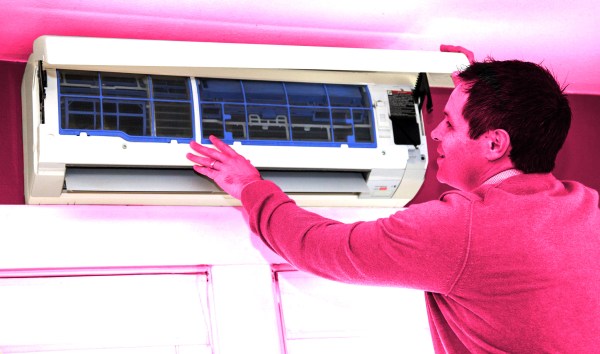👋 Hello and welcome to Energy News Weekly!
Nine states just made a big electrification commitment: They want electric heat pumps to make up 90% of their residential heating, air conditioning and water heating sales by 2040.

Officials in California, Colorado, Maine, Maryland, Massachusetts, New Jersey, New York, Oregon and Rhode Island signed on to the agreement last week. And while it’s legally nonbinding and the states haven’t set aside any funding to achieve the goal, it’s a step toward making heat pumps the norm for homeowners when they install new HVAC equipment.
The residential sector is a big contributor to U.S. greenhouse gas emissions, especially in cold Northeastern states that heavily rely on fossil fuels for heating. Heat pumps meanwhile use electricity to both heat and cool homes, and while much of that electricity may come from fossil fuels for now, they use that power far more efficiently than gas boilers. They also help keep natural gas and its health and safety risks out of homes.
And if you’ve got questions about just how well electricity can heat a home, this study from 2022 shows heat pumps kept Maine residents cozy even when temperatures dropped below freezing. It’s a big goal, but another record year for heat pump sales suggests it’s within reach. An industry group reported the electric appliances outsold natural gas furnaces by 21% in 2023, marking the second year in a row that heat pumps have outsold gas.
More clean energy news
🏭 Cutting soot, saving lives: The U.S. EPA is tightening airborne soot regulations to reduce coal plant and diesel truck pollution, a move expected to save as many as 4,500 lives in 2032 and bring $46 billion in health benefits by that year. (E&E News)
Read more: Air quality monitoring data suggests Arizona, California, Pennsylvania and Texas will have the hardest time meeting the new soot limits, though 99% of counties will likely comply with the rules by 2032. (E&E News, Utility Dive)
📈 The IRA’s price tag is growing: The estimated cost of implementing the federal climate law has more than doubled since its passage in 2022, largely because forecasters think its clean energy, electric vehicle and other incentives will be more popular than originally expected. (The Hill)
🚨 ‘Dangerous greenwashing scheme’: Democratic senators call on federal regulators to crack down on “responsible” and “certified” natural gas claims, saying the selling of low-emissions methane is a “dangerous greenwashing scheme” that undermines the clean energy transition. (The Guardian)
💧 Keeping hydrogen clean: As some developers look to weaken proposed rules for federal clean hydrogen tax credits, environmental advocates warn that could divert existing clean energy generation to hydrogen production and prolong fossil-fuel-fired generators. (Energy News Network)
🏫 Stolen lands’ legacies: State trust lands taken 150 years ago from Indigenous territories in Western and Midwest states provide public universities with millions of dollars of annual funding, largely via oil and gas drilling. (Grist)
🚚 Long road ahead: Waning interest in Ford’s F-150 electric truck reflects a broader cooling market for electric vehicle sales, though experts still predict long-term demand to grow. (New York Times, NPR)
🌎 Climate rights: Several states are considering amending their constitutions to guarantee residents’ right to a safe climate amid a nationwide campaign by environmental advocates. (The Hill)
☑️ Voting for clean energy: The World Resources Institute says the 2024 presidential election will perhaps be the biggest driver of the U.S. clean energy sector’s near-term future. (Utility Dive)
📢 We want to hear from you! Send us your questions, comments, and story tips by replying to this email.
💸 Support our work: The Energy News Network is powered by support from readers like you. If you like Energy News Weekly, share it with a friend! Or give today and help us keep our news open and accessible for all.
📧 Want more energy news? Sign up for our daily digests.
